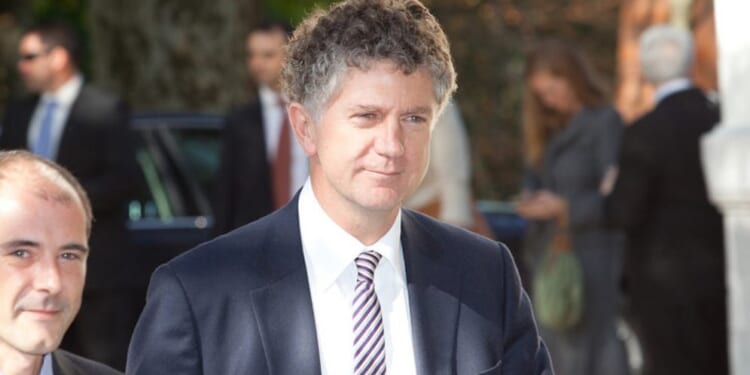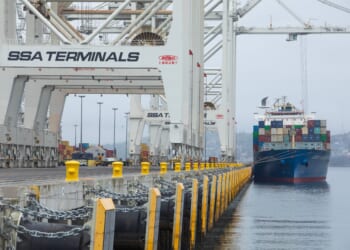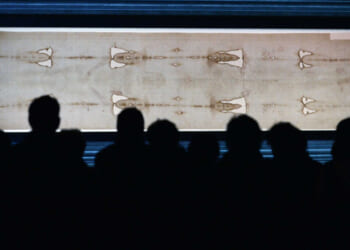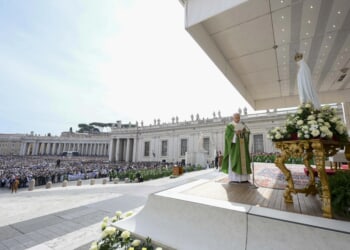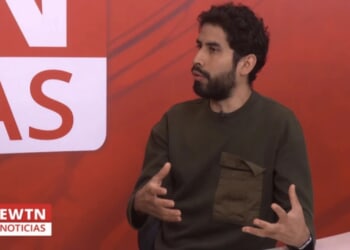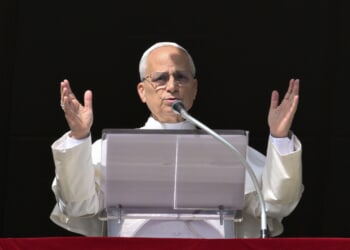The Government offered an implausible tale in the Commons yesterday.
Security minister Dan Jarvis – from previous experience a kind and decent man – took to the despatch box to accuse journalists of publishing “simply untrue” stories about the China court case controversy, despite then providing no answers or evidence to back up an alternative narrative.
The stories in question concern the sudden collapse of the China espionage prosecution, in which two alleged spies – accused of passing intelligence to Beijing – walked free after the Government declined to provide evidence that China was a threat to national security.
It was a story that dominated the final night of Tory conference, with shadow cabinet ministers excitedly speculating about whether another senior Labour head – this time the National Security Adviser, Jonathan Powell – might soon roll.
The Tories wasted little time in forcing the Government to explain itself. Yesterday’s Commons Urgent Question was an awkward affair for Labour. Kemi Badenoch, forensically precise and unsparing, pressed the front bench to clarify why the evidence the CPS requested for prosecution was not supplied by the Government.
It was Matthew Collins, the Deputy National Security Adviser, who Jarvis says “was given full freedom to provide evidence without interference” – and didn’t.
If we are being charitable, it stretches belief to imagine that without having a conversation with the actual National Security Adviser, his deputy made a final, fundamental decision on a China court case that involved the potential breach of Parliamentary security. No conversation with anyone in No.10, nor any minister?
Ministers are blaming Collins for failing to provide enough evidence to see the case through, while defending his decision to do so and their decision not to get involved (ministers and special advisers did not take decisions about that evidence…this Government have not sought to interfere with the process). Their argument is a mess – on their own account, a Labour Government’s ministers and National Security Adviser didn’t give input to a sensitive trial that alleged spying on Parliament, but instead sat back and watched it collapse from the sidelines. If we are being realistic, it looks like Collins may be being made a scapegoat.
So what evidence did Collins provide? Why did he decline to designate China a threat to national security, especially given warnings otherwise from the heads of MI5, MI6 and previous government statements? Will the government publish that and the minutes of the meetings in which the CPS requests for evidence were discussed – and if not, why not?
The basic fact is unavoidable: the Labour Government did not give the CPS the evidence it needed to proceed. Why? The Tories are determined to find out, and Badenoch’s first PMQs after recess tomorrow may offer the chance to press Starmer directly.
The former DPP will no doubt retreat into legalese, but the Opposition Leader should hammer along the single, unavoidable question: evidence was requested and not provided. Why? Who took that decision? Are we really to believe that in ensuring the prosecution of a case touching on parliamentary espionage, the National Security Adviser was uninvolved, and No. 10 not consulted?
If it is so simple to say that a single civil servant is responsible alone for the decision not to provide the evidence requested by the CPS, then surely it should be simple enough to back that up. Publish the correspondence between Jonathan Powell the National Security Adviser and his deputy. Have Powell and Collins appear, not before the private session of the Joint Committee on the National Security Strategy, but openly address parliamentarians. Or is there something Labour is worried about revealing?
Only yesterday MPs were again warned by the security services that they remain targets for hostile states, including China – whodathunkit? In that case, the least the Government might do is ensure prosecutions for espionage actually proceed.
Iain Duncan Smith – a long-time China hawk – captured the absurdity perfectly in the Commons:
“The question I really want to ask is about the absurdity of the role, or lack of role, of the National Security Adviser. The Government say that he was not involved in any matters of substance, but is it not the role of the National Security Adviser to be involved in all matters of substance when it comes to national security?
“What is the point of a National Security Adviser who does not involve themselves in matters of national security, as in this case? Instead, are we meant to believe that the deputy National Security Adviser was allowed to involve themselves in substantial matters of national security in this case, but apparently not to discuss these substantial matters of national security with the National Security Adviser?”
Quite. The whole thing sounds as farcical as he suggests. It will fall to the Tories – and to the lobby – to keep tugging at the thread.

